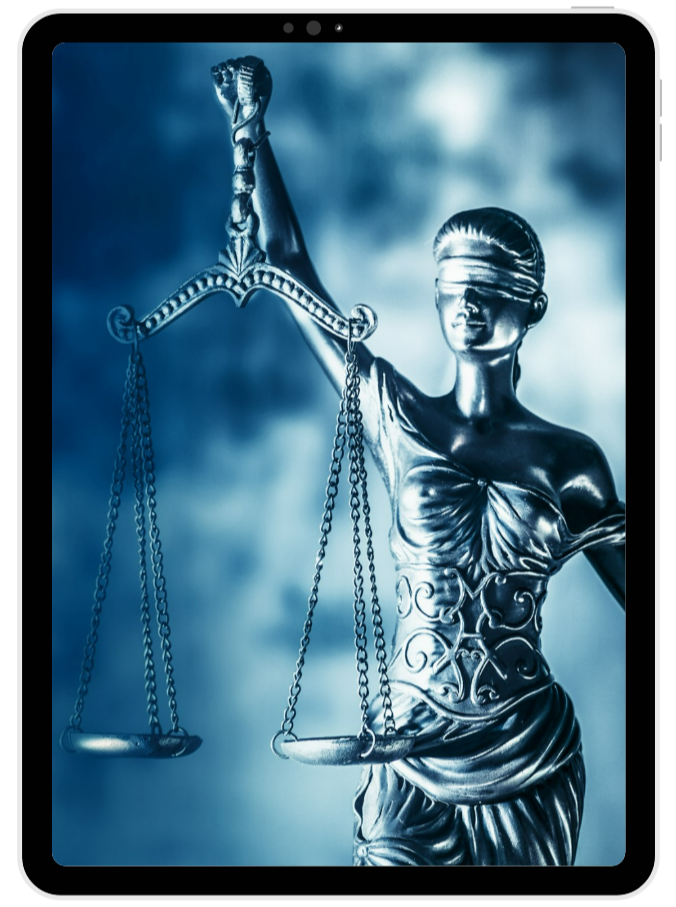Want to learn how to get into Cornell Law School?
Then you’ve come to the right place.
By the end of this guide, you’ll know exactly how to craft a standout application that gives you the best chance of snagging a spot in the incoming class.
Ready to get started? Let’s dive in!
Is it hard to get into Cornell Law School?
According to the latest data, the Cornell Law School acceptance rate is 23.1%.
Now, I know that number seems low.
But in reality, it means nearly 1 in 4 applicants get into Cornell Law School!
And with the right strategy, that one could be you.
Before I tell you how to make that happen, let’s talk about the programs Cornell Law School offers.
What programs does Cornell Law School offer?
Cornell Law offers the following programs:
- Juris Doctor (JD), the standard three-year law degree
- Master of Laws (LL.M.), which offers the chance to tailor your law studies to your academic and career objectives
- Doctor of Juridical Science (JSD), which is comparable to a Ph.D.
- Cornell Tech LL.M. Program, a one-year program for practicing attorneys and recent graduates
- Master’s Degree in Legal Studies (MSLS), for business professionals
International dual degree and joint JD degree programs are also available.
Today, we’ll be focusing on the JD program. Keep reading to find out more!
Cornell Law School admissions statistics
So, what exactly does it take to get into Cornell Law School? Let’s find out.
Who gets into Cornell Law School?
Here’s a quick look at the students who make up the class of 2027:
| Male | 54% |
| Female | 44% |
| Average age | 24 |
| First-generation college students | 15% |
| Veterans or military reservists | 5% |
What GPA do you need to get into Cornell Law School?
When it comes to GPA results, students who get into Cornell Law School have a median score of 3.89.
Here’s the entire range:
- 75th percentile: 3.96
- 50th percentile: 3.89
- 25th percentile: 3.73
That means a 3.96 GPA is considered high, while a 3.73 is low. A 3.89 is average.
What LSAT score do you need to get into Cornell Law?
So what about LSAT scores? Here’s the full breakdown:
- 75th percentile: 175
- 50th percentile: 173
- 25th percentile: 169
In other words, 173 is the average for students who get into Cornell Law School, while a 175 is high and a 169 is low.
Acceptance rate
In 2024, the Cornell Law School acceptance rate was 23.11%.
You can see below that this was much higher than in previous years.
| 2023 | 19.3% |
| 2022 | 17.4% |
| 2021 | 15.4% |
Rankings
In terms of rankings, Cornell Law School is listed as a T14 law school. That means it’s one of the best law schools in the country.
So, yes, admission is competitive. But you can still get into Cornell Law School with lower scores.
I’ll tell you how next!

How do you get into Cornell Law School with lower GPA or LSAT scores?
The good news?
There’s always some flexibility when it comes to GPA and LSAT scores.
- In other words, you don’t need to score incredibly high to get in. You just need scores that are within reach of the averages.
For example, let’s take another look at the ranges:
- GPA: 3.73-3.96
- LSAT: 169-175
Now, you could still get into Cornell Law School with a 3.6 GPA or a 170 LSAT.
But a 3.2 GPA or 160 LSAT probably wouldn’t cut it.
It’s important to remember that Cornell Law also takes a holistic approach to admissions.
That means the admissions team looks at your entire application, including your essays, recommendations, and resume.
Still, if your scores aren’t where you want them to be, you can use the following strategies to boost them.
Retake the LSAT
If you didn’t reach your target LSAT score the first time, don’t panic!
You can always retake it.
In fact, you can take it five times in five years.
But I don’t recommend taking it more than three times, or you could damage your chances.
Take the GRE
If you’d rather not retake the LSAT (I get it), Cornell Law also accepts GRE scores, which could be a good alternative.
The admissions team will also consider GMAT scores.
Create a strong application
In the face of lower scores, the other elements of your application become even more critical.
I’m talking about your:
- Personal statement
- Letters of recommendation
- Resume
You could also consider including an addendum, but I rarely recommend this route – and I explain why in this guide.
Of course, scores aren’t the only element of your application. So, let’s dive into what else you need.
Application requirements for Cornell Law School
To make your application stand out, you’ll need to be strategic when it comes to the application requirements for Cornell Law School.
Let’s cover them now.
Bachelor’s degree
First off, you need a bachelor’s degree from any regionally accredited school or university.
Remember, while the average undergraduate GPA of students who get into Cornell Law School is 3.89, you only need a GPA within reach of that number.
Application and transcript
When it comes to submitting your actual application, you’ll do so through the Law School Admissions Council Website along with an $80 application fee.
Your transcripts for all undergraduate and graduate work will also be submitted to LSAC.
Standardized test scores
Cornell Law will also want to see your test scores.
They accept any LSAT scores received in the last five years (since 2020), and although they see all your scores, they only consider the highest.
As I mentioned earlier, if you’d rather not take the LSAT, Cornell Law also accepts the GRE and GMAT.
Just remember, your scores won’t be the deciding factor in whether or not you get into Cornell Law.
In fact, there’s no minimum LSAT score or GPA you need to hit to be considered!
Here’s what the school says about it:
“We use more than numbers to evaluate our candidates. We also consider extracurricular and community activities, life experience, work background, and recommendations.”
Personal statement
Now, many people underestimate the power of a well-written personal statement.
The reality is that it’s one of the most important parts of your application.
Why?
Because it’s your chance to tell the admissions committee who you are beyond the numbers.
Cornell offers four prompts to choose from:
- Please describe significant challenges you have overcome and/or significant accomplishments.
- Explain how your life experiences will help inform your contributions to a law school learning community devoted to “…any person…any study.”
- If your career goals include representing under-served populations or vulnerable individuals or groups, tell us about those goals and how you will pursue them.
- Is there anything else you want the Admissions Committee to know about you? You can describe a formative experience, your motivation for law school, or a personal story.
- While you must answer at least one, you can respond to as many as you’d like (as long as you’re within the five-page limit).
Now, let’s talk about that last prompt for a second.
If you decide to go this route, I recommend you choose your topic carefully.
You’ll want to create a cohesive narrative that shows why you want to get into Cornell Law School without much explanation.
Not sure where to start? Check out these resources I’ve put together:
- Law School Personal Statement Topics to Avoid
- How to Write a Law School Personal Statement
- Law School Personal Statement Examples
Why Cornell statement
In addition to your personal statement, you also need to write a Why Cornell statement.
Simply put, this is your opportunity to explain why you want to get into Cornell Law School.
My number one piece of advice? Be as authentic as possible.
Focus on the parts of Cornell Law that matter most to you, like the student-to-faculty ratio or how they’ll help you reach your goals.
Letters of recommendation
Cornell also requires you to submit two letters of recommendation.
They’re a great way for the admissions committee to gain more insight into your academic capabilities, work ethic, and potential.
And who better to speak on that than a former teacher?
That said, I know not everybody can get a teacher to vouch for them, especially if they’ve been out of school for a few years.
If that’s the case for you, you can ask for professional recommendations from your colleagues or supervisors.
Read more: Who to Ask for Law School Letters of Recommendation
Law school resume
Your resume is one of the best ways to illustrate that you’ve spent time preparing and will succeed when you get into Cornell Law School.
Now, Cornell doesn’t have any specific guidelines, but I always recommend sticking to one or two pages and using the following headers:
- Education
- Work experience
- Extracurriculars
- Honors and awards
- Skills and interests
You can learn how to write and format one (and see real-life examples!) in this guide.
Interview
Finally, you won’t need to attend an in-person interview to get into Cornell Law.
That’s because the admissions team has decided not to host in-person interviews in order to keep the process fair for everyone.
Instead, applicants who are strongly considered for admission will be asked to take a Kira Online Assessment.
Now that you know the application requirements, let’s talk about tuition.

Cornell Law tuition fee and financial aids
At Cornell Law, tuition is $81,306 per year.
And that’s before things like fees, supplies, and housing.
With all of those in mind, the estimated total cost of attendance is $109,636.
Financial aid is also available through scholarships, federal loans, and more.
You can learn more here.
Still have questions about how to get into Cornell Law School? I’ll answer them next.
FAQs: How to get into Cornell Law
Does Cornell Law interview all applicants?
No.
To keep the admissions process as fair as possible, there are no in-person interviews.
Instead, certain applicants are invited to complete a Kira Online Assessment, which includes verbal and written answers.
What are the application deadlines for Cornell Law School?
Here are the dates to keep in mind when applying to get into Cornell Law School:
| September 1st | Applications open |
| January 1st | Early Decision application deadline |
| March 1st | Priority application deadline |
| July 1st | Regular application deadline |
Though the final deadline for regular decision applicants is July 1st, decisions are made on a rolling basis.
In other words, the earlier you apply, the better.
Cornell recommends filing and completing your application by March 1st.
What GPA & LSAT do you need for Cornell Law School?
There’s no minimum GPA or LSAT requirement for those hoping to get into Cornell Law School.
But there are scores you should aim for – let’s take a final look at the ranges for both.
GPA:
- 25th percentile: 3.73
- 50th percentile: 3.89
- 75th percentile: 3.96
LSAT:
- 25th percentile: 169
- 50th percentile: 173
- 75th percentile: 175
Next steps
There you have it!
A complete guide to help you get into Cornell Law School.
And you can do it – as long as you’re strategic.
Ready to take the next step?
I’ll help you create an application that separates you from the pack.
Find out what it’s like to work with me here.
Read more:
How to Get into UVA Law School






